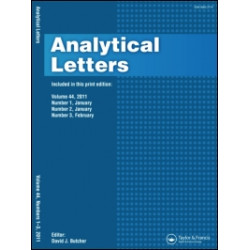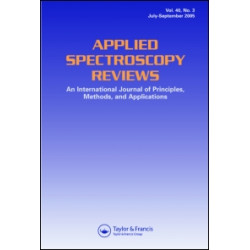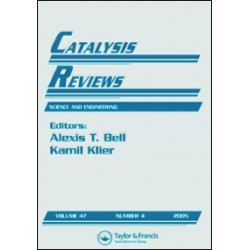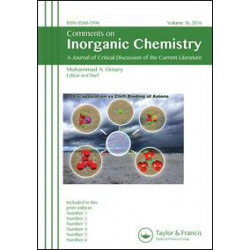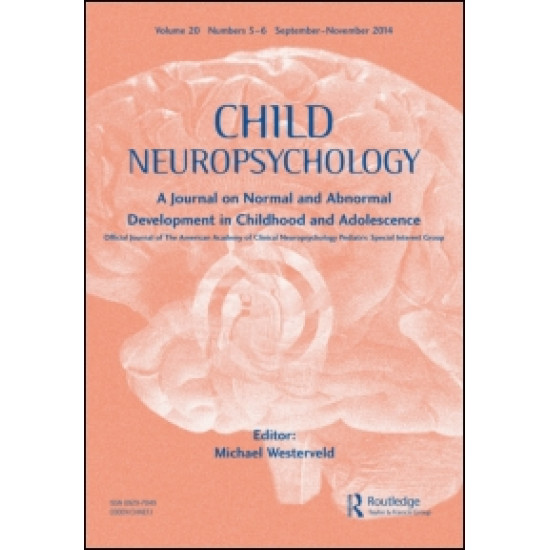
Child Neuropsychology
The purposes of Child Neuropsychology are to:
- publish research on the neuropsychological effects of disorders which affect brain functioning in children and adolescents,
- publish research on the neuropsychological dimensions of development in childhood and adolescence and
- promote the integration of theory, method and research findings in child/developmental neuropsychology.
The primary emphasis of Child Neuropsychology is to publish original empirical research. Theoretical and methodological papers and theoretically relevant case studies are welcome. Critical reviews of topics pertinent to child/developmental neuropsychology are encouraged.
Emphases of interest include the following: information processing mechanisms; the impact of injury or disease on neuropsychological functioning; behavioral cognitive and pharmacological approaches to treatment/intervention; psychosocial correlates of neuropsychological dysfunction; definitive normative, reliability, and validity studies of psychometric and other procedures used in the neuropsychological assessment of children and adolescents. Articles on both normal and dysfunctional development that are relevant to the aforementioned dimensions are welcome. Multiple approaches (e.g., basic, applied, clinical) and multiple methodologies (e.g., cross-sectional, longitudinal, experimental, multivariate, correlational) are appropriate. Books, media, and software reviews will be published.
Peer Review: All submitted manuscripts are subject to initial appraisal by the Editor, and, if found suitable for further consideration, to peer review by independent, anonymous expert referees. All peer review is double blind and submission is online via ScholarOne Manuscripts.
Disclaimer
Taylor & Francis makes every effort to ensure the accuracy of all the information (the "Content") contained in its publications. However, Taylor & Francis and its agents and licensors make no representations or warranties whatsoever as to the accuracy, completeness or suitability for any purpose of the Content and disclaim all such representations and warranties whether expressed or implied to the maximum extent permitted by law. Any views expressed in this publication are the views of the authors and are not the views of Taylor & Francis.
Emphases of interest include the following: information processing mechanisms; the impact of injury or disease on neuropsychological functioning; behavioral cognitive and pharmacological approaches to treatment/intervention; psychosocial correlates of neuropsychological dysfunction; definitive normative, reliability, and validity studies of psychometric and other procedures used in the neuropsychological assessment of children and adolescents. Articles on both normal and dysfunctional development that are relevant to the aforementioned dimensions are welcome. Multiple approaches (e.g., basic, applied, clinical) and multiple methodologies (e.g., cross-sectional, longitudinal, experimental, multivariate, correlational) are appropriate. Books, media, and software reviews will be published.
Peer Review: All submitted manuscripts are subject to initial appraisal by the Editor, and, if found suitable for further consideration, to peer review by independent, anonymous expert referees. All peer review is double blind and submission is online via ScholarOne Manuscripts.
Disclaimer
Taylor & Francis makes every effort to ensure the accuracy of all the information (the "Content") contained in its publications. However, Taylor & Francis and its agents and licensors make no representations or warranties whatsoever as to the accuracy, completeness or suitability for any purpose of the Content and disclaim all such representations and warranties whether expressed or implied to the maximum extent permitted by law. Any views expressed in this publication are the views of the authors and are not the views of Taylor & Francis.
₹119,556.01









